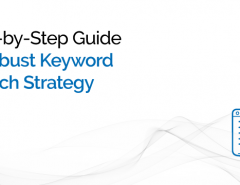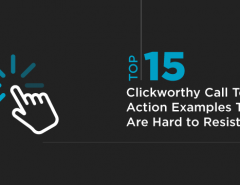
A Cheat Sheet on Ideal Blog Post Length for Driving More Shares in 2018
What should be the ideal blog post length for driving more shares?
After every blog, this is the only issue that qualms your mind. Right?
You are not alone, bloggers and content marketers around the world face this challenge now and then.
While writing and posting a blog, the primary focus of any blogger is to produce irresistible copies making it imperative to share. Simultaneously, content marketers want to drive more traffic to their website by posting blogs and other relevant content forms to their company.
Our wired medium offers a plethora of advises and suggestions on the perfect blog post length. But you are sure to get confused most of the time.
Determining the length of a blog post content is a confusing topic, isn’t it?
The purpose of my post is to enlighten the bloggers, (who are always struggling to strike a balance between blog length, getting more shares and receiving the considerable amount of traffic) with experts’ views on the perfect length of blog content. I have conducted online research to find out the definite answer to the ideal blog post length and finally formatted this post.
Here’s a Cheat Sheet On Ideal Blog Post Length for Driving More Shares in 2018, just take a look.
Of late there’s been much hue and cry about the length of a blog post. Longer contents are getting noticed more than shorter blogs. So can we say that Long Blog Posts are the best and Short Blog Posts are the worst? A big NO! Read on the entire blog before reaching to a certain conclusion.
When we take a look at the following data, we find that longer articles which are over 2000 words are seen on the first page of Google.
- According to a report published in 2016, Orbit Media the length of the recent blog posts had risen to 1,054 words. It is seen that of late shorter blogs are at the periphery now. They are not receiving the desired results that most bloggers hope to meet. In 2016, articles comprising 1,500+ words became blogs with the most traffic. Such blogs also enjoyed maximum social media attention.
- Blog post that ranked on the first page of Google was over 2,000 words. Comprehensive content (which usually needs to be long) ranks well because it helps search engines offer users a complete answer to the query. Blog posts over 2,000 words tend to outperform shorter content in organic search.
- A Kissmetrics blog says Long-form Content Gets You More of What You Want :one needs to create long-form contents to get more online visibility (social shares, links) and also more engagement.
- Snap agency in their post, For Blog Posts in 2018, What’s the Best Length for SEO? “Blog post length matters because it seems to correlate strongly to higher rankings in search engines like Google, Yahoo and Bing. This correlation has existed for years, but the evidence seems to suggest that longer posts are becoming more important for ranking.”

Hence, from the above data and statistics, we understand that:
- Longer blog posts are often the ‘pillar’ articles: Such blogs give content marketers good organic search ranking. In addition to that such blog posts establish the reader’s faith in you and they think it perfect to share with his social networking group.
- Longer contents increase your business ROI: Content is considered to be one of the best sales tool, hence bigger the better. When readers consume lengthy contents, you will see the breathtaking change in your website conversion.
- Google gives weight to word count- meaning improved SEO: Word count gets importance, longer the content more effective it is. When Google updated the algorithm in 2012 with Penguin and Panda, the new era of producing quality content arrived. Website ranking depended on the metrics of the time spent by a reader on the site and number of social shares. Google wants to present great contents to its readers and give them a delightful experience. In this regard, longer contents present a more in-depth insight on a topic and certainly has a better chance of meeting the goal of high search engine ranking.
- Lengthy content gives you scope to get noticed in the competitive content marketing ground: Content marketing is the best way to get traffic to your website. Nowadays, every company and enterprise of all size focuses on this technique. As a result, competition is massive.
To survive in this cumbersome state and stand tall, you need to create aggressive content marketing strategies. Therefore if you write longer blogs with more than above quality, it’s sure to rule the industry.
Lengthy pieces give writers the opportunity to dive deeper and teach better on any given subject.
As Neil Patel (New York Times Bestselling author) in his blog How Long Should Your Blog Articles Be? is found quoting, “Longer Posts usually perform better on every level.”
A blog published in website IMPACT: Inbound Marketing Strategy, Advice, and Agency supports the view that longer content gets more social shares. The blog identifies the matter that although readers didn’t have time to read a long piece of content of 10 minutes, yet he preferred it ‘fit’ to share it because he thought the content had a lot of value.
According to the recent Blogging trends of 2018, if you want to make your blog popular, then you must write lengthy and extensive contents.
But wait!
Should every single blog be written in the longer form, or is it better to opt for shorter pieces?
It’s important to find out answers to these above questions owing to today’s ever-changing Google Algorithm for ranking and SEO.

How long should a blog be?
Interestingly, worldwide experts are of the view that there’s no perfect length of a blog post. Although continuously we come across several data and charts on the fact that Google appreciates longer posts of 2000+ words, yet you need to understand that it’s quite a puzzling matter.
Here you can go through what Rand Fishkin had to say. In his blog ‘The Perfect Blog Post Length and Publishing Frequency’, he states that what we come across on the internet regarding the word count (that only lengthy articles get more shares) is claptrap.If we take an online tour, we will come across several short blog contents ( with 500- 800 words) that have received the same amount of accolades from the search engines as lengthy blogs are doing. Those posts also received exemplary shares.
There are several famous bloggers like Seth Godin who’s known for writing extremely short posts that are often under 200 words and he gets crazy shares.
Then what would be our stand? What word count would be a praiseworthy attempt?
Surprisingly, there’s no agreement about the ideal blog post length. But if you take a look at the ‘Blogging Statistics and Trends’ you might get an idea of the average length of a blog post.
It’s a tricky strategy, although it’s seen that the trend is towards longer contents, yet one cannot strongly say that short written contents would not drive the target audience.
Experienced bloggers say that whatever the length, one must write in a way that engages your readers by informing or advising on a given topic.

How to do it?
Neil Patel (New York Times Bestselling author) tells us, “You’re also going to want to specialize in a few key areas and be able to provide your audience with expert advice.”
People who are interested in your company or product will go through your blogs (longer or short). If they find it relevant, you get the cream audience who will instantly switch from leads to consumers.
It can be deduced that a blogger should concentrate more on insertion of proper keywords, optimizing the blog, making it visually solid rather than blog length and make the blog noticed amidst tough competition.
Regarding the anatomy of a blog post, Hubspot states, “The meat of your blog post — separated by various sub-headers, of course — is where your readers will undoubtedly derive the most value. In our analysis, the ideal blog post length is roughly 2,100 words, but that will vary depending on your topic.”
Something that I have researched extensively- your blog posts rankings, social shares, engagement metrics, CTRs depend on the following:
1. Make your contents visually solid
Content means a combination of text, video, images, infographics, etc. or any single application of these. Blog writing is the most common type of content one comes across a website. Even website crawlers also find texts easily understandable. So by providing the quality text of considerable length on a page, you make things easier for the search bots to increase your chances of securing the top position in the rankings.
But when you combine it with more visual components, the piece is sure to receive substantial attention. The plot is -stuffing your content with more images, videos, that is making it visually more impressive. This calculative style is sure to let you reap benefits
CoSchedule reports: “Include visuals in your blog and publish on your site.”
2. Strike a balance between both quality and quantity
Google is continually updating itself with an aim to provide the best content to its audience. Hence, you must focus on the quality of the blog. Produce high-quality posts that people who are genuinely interested in your brand would be benefited from.
Readers don’t have enough attention span, so you need to provide them with informatively rich content. They will go away if you start producing fluff content. As the internet offers information on many similar topics, your efforts would be appreciated if you can tell something new, useful and relevant to them.
This rounds off, that when you create content that’s useful to your readers, you will achieve the desired rank in search results.

3. Optimizing blog posts after writing them matters
How to get traffic to your blog? The most significant question of every content marketer ever. Amidst zillion of posts regularly published, achieving a ranking in the search engine is one big concern of all.
Blogs with most traffic are formed perfectly- dealing with the relevant topic and having a reading as well as visual appeal. High-quality writing is an essential foundation for great blogging. But, only high quality also does not suffice useful blogging activity.
To achieve the three significant metrics of blog posting:
- to make your blog posts rank on Google
- increase social shares
- engage readers on your website
You need to optimize your blogs and see a surprising increase in monthly organic traffic go up 50-300%.
Tip: How to optimize your blogs?
Word count would do wonders only if your written content is of high quality
- Make it enriched with long tail keywords
- Give proper linking- inbound and outbound
But above all, there are certain blog post length best practices:
You must understand that word count is not the only and ultimate ranking factor blog needs to be informative and exhaustive.
- Do your research on your plan a blog post.
- Perform off-page activity once you post your content on your site.
- Lastly,check the number of social media shares after 20-30 days.
Your call
Remember that when it comes to your blogging strategy, there’s no perfect length. The length depends mainly on the topic chosen and for which industry you are writing for. A small tweak here and there can change your ranking and traffic influx. The primary purpose of your blogs should be to take your visitors on-board. The most vital point of writing and posting a blog is to keep your audience happy. If your readers are satisfied, they will share your posts more. The more visitors share your blogs more you get the chance of turning your leads into final customers. Unleash your creativity, let it take the stride and enable you to produce contents that both the search engine and your readers would love.



